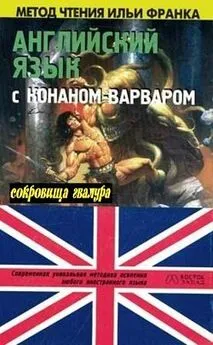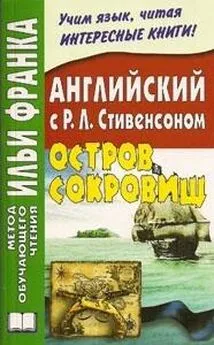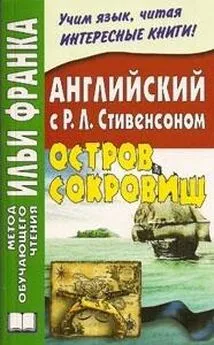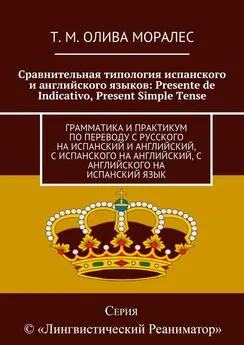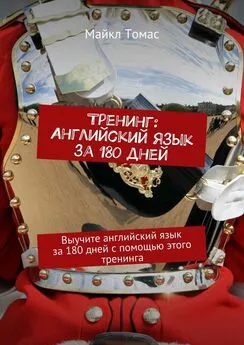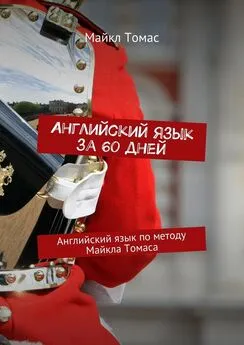Роберт Говард - Английский язык с Р. Э. Говардом
- Название:Английский язык с Р. Э. Говардом
- Автор:
- Жанр:
- Издательство:неизвестно
- Год:неизвестен
- ISBN:нет данных
- Рейтинг:
- Избранное:Добавить в избранное
-
Отзывы:
-
Ваша оценка:
Роберт Говард - Английский язык с Р. Э. Говардом краткое содержание
В книге предлагается произведения Роберта Е. Говарда, адаптированные (без упрощения текста оригинала) по методу Ильи Франка. Уникальность метода заключается в том, что запоминание слов и выражений происходит за счет их повторяемости, без заучивания и необходимости использовать словарь. Пособие способствует эффективному освоению языка, может служить дополнением к учебной программе. Предназначено для студентов, для изучающих английский язык самостоятельно, а также для всех интересующихся английской культурой.
"Метод чтения Ильи Франка
"Повести:
Jewels of Gwahlur (Сокровища Гвалура)
The Devil In Iron (Железный демон)
Rogues In The House (Негодяи в доме)
The Tower Of The Elephant (Башня Слона)
Английский язык с Р. Э. Говардом - читать онлайн бесплатно полную версию (весь текст целиком)
Интервал:
Закладка:
mangy [ˈmeɪnʤɪ], tousled [tauzld], forehead [ˈfɔrɪd]
He blew a slobbery kiss in the air.
"I know lords in Shem who would trade the secret of the Elephant Tower for her," he said, returning to his ale.
A touch on his tunic sleeve made him turn his head, scowling at the interruption. He saw a tall, strongly made youth standing beside him. This person was as much out of place in that den as a grey wolf among mangy rats of the gutters. His cheap tunic could not conceal the hard, rangy lines of his powerful frame, the broad heavy shoulders, the massive chest, lean waist, and heavy arms. His skin was brown from outland suns, his eyes blue and smoldering; a shock of tousled black hair crowned his broad forehead. From his girdle hung a sword in a worn leather scabbard.
The Kothian involuntarily drew back (кофиец невольно подался назад; to draw back — отходить назад, отступать ); for the man was not one of any civilized race he knew (ибо человек не был одним = представителем какого-либо цивилизованного народа, известного ему: «он знал»; one — единица; человек; race — раса; народ;to know — знать ).
"You spoke of the Elephant Tower (ты говорил о Слоновьей Башне)," said the stranger (сказал незнакомец), speaking Zamorian with an alien accent (разговаривая по-заморийски с чужеземным акцентом). "I've heard much of this tower; what is its secret (я много слышал об этой башне, в чем ее тайна)?"
The fellow's attitude did not seem threatening (поза парня не казалась угрожающей; attitude — позиция; поза ), and the Kothian's courage was bolstered up by the ale and the evident approval of his audience (а смелость кофийца была приободрена элем и несомненным одобрением его аудитории; to bolster up smb.'s courage — приободрить, оказать моральную поддержку кому-либо; bolster — валик под подушкой; подушечка /для сидения, облокачивания/; evident — явный; несомненный ). He swelled with self-importance (он раздулся от самомнения; to swell — раздуваться; важничать ).
"The secret of the Elephant Tower (тайна Слоновьей Башни)?" he exclaimed (воскликнул он). "Why any fool knows that Yara the priest dwells there with the great jewel (да ведь любой болван знает, что жрец Яра живет там с огромным драгоценным камнем; why — да ведь ) men call the Elephant's Heart (который люди называют Сердцем Слона), that is the secret of his magic (который является секретом его магии)."
threaten [Ɵretn], courage [ˈkʌrɪʤ], audience [ˈɔ:dɪəns]
The Kothian involuntarily drew back; for the man was not one of any civilized race he knew.
"You spoke of the Elephant Tower," said the stranger, speaking Zamorian with an alien accent. "I've heard much of this tower; what is its secret?"
The fellow's attitude did not seem threatening, and the Kothian's courage was bolstered up by the ale and the evident approval of his audience. He swelled with self-importance.
"The secret of the Elephant Tower?" he exclaimed. "Why any fool knows that Yara the priest dwells there with the great jewel men call the Elephant's Heart, that is the secret of his magic."
The barbarian digested this for a space (варвар переваривал это какое-то время; to digest — классифицировать; переваривать; усваивать, продумывать;space — пространство; промежуток времени; срок ).
"I have seen this tower (я видел эту башню)," he said. "It is set in a great garden above the level of the city, surrounded by high walls (она расположена в большом саду выше уровня города, окруженном высокими стенами). I have seen no guards (я не видел сторожей; guard — охрана; сторож ). The walls would be easy to climb (взобраться на стены было бы легко). Why has not somebody stolen this secret gem (почему кто-нибудь не украл этот таинственный камень; to steal — красть )?"
The Kothian stared wide-mouthed at the other's simplicity (кофиец уставился, широко разинув рот, на простодушие второго = на юношу, поразившись его простодушию; to stare — пристально глядеть; уставиться;other — другой; второй /из двух, трех/ ), then burst into a roar of derisive mirth (потом захохотал от иронического веселья = потом разразился ироническим смехом; to burst — лопаться; разражаться /гневом, слезами и т. п./ ), in which the others joined (к которому присоединились остальные).
digest [daɪˈʤest], guard [ɡɑ:d], climb [klaɪm]
The barbarian digested this for a space.
"I have seen this tower," he said. "It is set in a great garden above the level of the city, surrounded by high walls. I have seen no guards. The walls would be easy to climb. Why has not somebody stolen this secret gem?"
The Kothian stared wide-mouthed at the other's simplicity, then burst into a roar of derisive mirth, in which the others joined.
"Harken to this heathen (послушайте этого дикаря; heathen — язычник; дикарь, варвар )!" he bellowed (прорычал он; to bellow — реветь; рычать ). "He would steal the jewel of Yara (он похитил бы камень Яры)! — Harken, fellow (послушай, парень)," he said, turning portentously to the other (обратившись напыщенно к тому: «к другому»; portentous — зловещий; напыщенный ), "I suppose you are some sort of a northern barbarian (я полагаю, ты какой-то северный варвар; some sort of — какой-то ) —»
"I am a Cimmerian (я киммериец)," the outlander answered, in no friendly tone (ответил чужеземец недружелюбным тоном). The reply and the manner of it meant little to the Kothian (ответ и манера его мало значили для кофийца; to mean — намереваться; значить ); of a kingdom that lay far to the south, on the borders of Shem (/будучи родом/ из королевства, которое простиралось далеко к югу, на границах с Шемом; to lie — лежать; располагаться; простираться ), he knew only vaguely of the northern races (он имел лишь смутное понятие о северных народах; to know — знать; иметь представление ).
heathen [ˈhi:ðən], portentous [pɔ:ˈtentəs], vague [veɪɡ]
"Harken to this heathen!" he bellowed. "He would steal the jewel of Yara! — Harken, fellow," he said, turning portentously to the other, "I suppose you are some sort of a northern barbarian-"
"I am a Cimmerian," the outlander answered, in no friendly tone. The reply and the manner of it meant little to the Kothian; of a kingdom that lay far to the south, on the borders of Shem, he knew only vaguely of the northern races.
"Then give ear and learn wisdom, fellow (тогда, парень, послушай и поучись мудрости; to give ear to — выслушать кого-л. )," said he, pointing his drinking jack at the discomfited youth (указывая своей кружкой на смущенного юношу). "Know that in Zamora, and more especially in this city (знай, что в Заморе, а /более/ особенно в этом городе), there are more bold thieves than anywhere else in the world, even Koth (больше дерзких воров, чем где бы то ни было еще в мире, даже в Кофе; bold — отважный; наглый ). If mortal man could have stolen the gem (если бы смертный мог украсть этот камень; to steal ), be sure it would have been filched long ago (будь уверен, его бы стащили давным-давно). You speak of climbing the walls (ты говоришь о том, чтобы забраться на стены), but once having climbed (но как только ты забрался бы; once — однажды; как только ), you would quickly wish yourself back again (ты бы быстро захотел вернуться: «пожелал себя снова обратно» to wish — хотеть, желать ). There are no guards in the garden at night for a very good reason (ночью в саду нет сторожей по очень убедительной причине; good — хороший; убедительный ) — that is no human guards (то есть, нет людей сторожей; that is — то есть ). But in the watch chamber, in the lower part of the tower, are armed men (но в комнате караульных = в караулке , в нижней части башни, находятся вооруженные люди), and even if you passed those who roam the gardens by night (и даже если бы ты прошел тех, которые бродят по парку ночью; gardens — парк ) you must still pass through the soldiers (тебе еще нужно пройти мимо солдат), for the gem is kept somewhere in the tower above (ибо драгоценный камень хранится где-то в башне наверху; to keep — держать; хранить )."
discomfit [dɪsˈkʌmfɪt], especially [ɪsˈpeʃlɪ], soldier [ˈsəulʤə]
"Then give ear and learn wisdom, fellow," said he, pointing his drinking jack at the discomfited youth. "Know that in Zamora, and more especially in this city, there are more bold thieves than anywhere else in the world, even Koth. If mortal man could have stolen the gem, be sure it would have been filched long ago. You speak of climbing the walls, but once having climbed, you would quickly wish yourself back again. There are no guards in the garden at night for a very good reason — that is no human guards. But in the watch chamber, in the lower part of the tower, are armed men, and even if you passed those who roam the gardens by night, you must still pass through the soldiers, for the gem is kept somewhere in the tower above."
"But if a man could pass through the gardens (но если человек смог бы пройти через парк)," argued the Cimmerian (привел довод киммериец; to argue — спорить; аргументировать, приводить доводы ), "why could he not come at the gem through the upper part of the tower and thus avoid the soldiers (почему бы он не мог добраться до камня через верхнюю часть башни и таким образом избегнуть солдат; to come at — добраться до кого-л., чего-л. )?"
Читать дальшеИнтервал:
Закладка:
